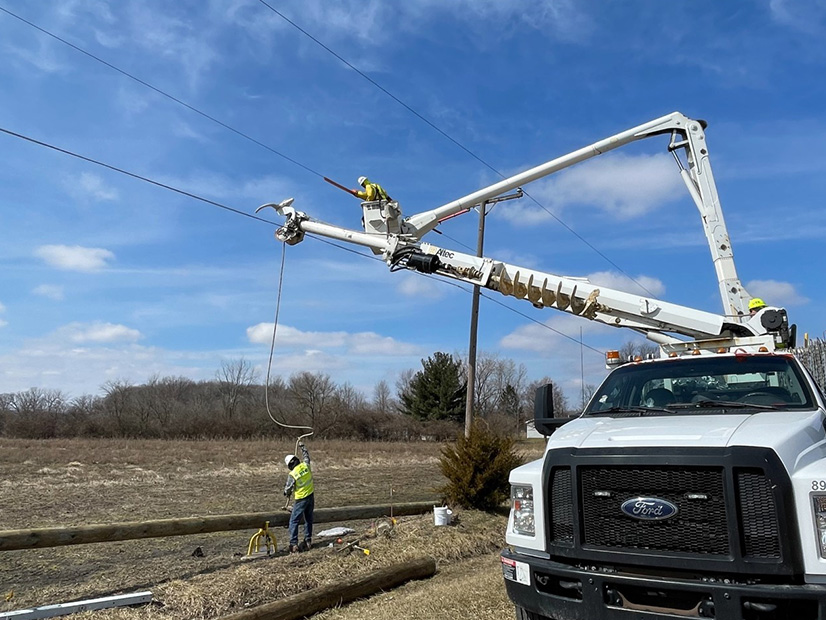LANSING, Mich. — Michigan lawmakers last week proposed new consumer protections against utility blackouts, requiring customer credits that would increase in value the longer an outage lasts.
The five-bill package (HB 6043-6047), all referred to the House Energy Committee, also requires the credits be paid out of a utility’s profits and not through rate increases. The package will also require that proposed distribution and grid investment plans be reviewed by the Public Service Commission.
A spokesperson for one of the state’s utilities said the legislation is not needed. A spokesperson for the PSC said commission members are reviewing the language.
The bills, introduced by Rep. Abraham Aiyash (D) and Rep. Yousef Rabhi (D) and cosponsored by Rep. Steven Johnson (R), are aimed at Michigan’s two largest investor-owned utilities: DTE Energy (NYSE: DTE) and CMS Energy (NYSE: CMS), which have been criticized for numerous blackouts that hit customers during intense storms and high winds.
“Investor-owned monopoly utility companies DTE and Consumers Energy have made record profits in recent years, yet communities across the state are still left in the dark with frequent power outages,” Rabhi said when the package was announced April 14.
“When the power goes out, which happens far too often, there are real financial burdens for Michigan families,” Aiyash said. “These bills will provide much needed relief and incentivize utility companies to improve their services and keep the lights on.”
Under HB 6043, residential customers would receive $5 for the first hour of service interruption, rising as high as $25/hour for outages of 72 hours or more.
Renters whose landlords pay their electric bills whose service is interrupted for four to 24 hours would be credited $50 or the cost of spoiled food, lodging or other costs incurred, whichever is larger. The credit could rise to $200 for interruptions of more than 24 hours.
Local governments would be eligible for reimbursement for their costs from outages, including the cost of dispatching emergency services, operating warming or cooling centers and running backup generation. HB 6045 would require $100 credits to any electric customer who had service interruptions in the past year, and a $200 credit if they had more than four interruptions.
The package would also require utilities to report to customers how many service interruptions they had during the year and prohibit them from including the cost of providing credits in any rate hike request to the Public Service Commission.
The utilities have been under fire for numerous interruptions following massive storms in the last two years. The PSC has held hearings and issued proposed changes to the utilities’ Service Quality standards.
Matt Helms, spokesperson for the PSC, said those proposed changes are pending in the state’s Office of Administrative Hearings and Rules before undergoing final action in the legislative Joint Committee on Administrative Rules.
The proposed changes include boosting the current bill credit — a flat $25, regardless of how long the power was out — to $35 and indexing the higher rate to inflation. It would also add more credits for each day a customer has no electric service.
Katie Carey, spokesperson for CMS Energy, said the bills are unnecessary in part because the company plans to spend more than $5 billion on improving reliability through tree trimming, replacing utility poles and upgrading to more resilient equipment. DTE Energy did not respond to a request for comment.
But Amy Bandyk, executive director of the Citizens Utility Board of Michigan, said her group believes the legislation would “put Michigan on the path to no longer being one of the worst states for utility service.” The organization’s research has shown both DTE and CMS have “consistently” failed to provide both affordable and reliable service, she said.



